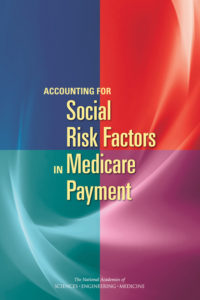SNAP Writes to House Ways and Means Committee About Medicaid DSH Audits
The federal government should give states the option of monitoring Medicaid disproportionate share payments (Medicaid DSH) to hospitals through prospective DSH limit calculations rather than through retroactive DSH audits.
 SNAP recently shared this view with the House Ways and Means Committee’s Health Subcommittee in response to that subcommittee’s request for suggestions from stakeholders on ways to improve the delivery of Medicare services and eliminate statutory and regulatory obstacles to more effective care delivery.
SNAP recently shared this view with the House Ways and Means Committee’s Health Subcommittee in response to that subcommittee’s request for suggestions from stakeholders on ways to improve the delivery of Medicare services and eliminate statutory and regulatory obstacles to more effective care delivery.
According to SNAP, retroactive DSH audits are cumbersome, burdensome, and expensive, give rise to many disputes and appeals, and in the end yield results very similar to much simpler prospective DSH limit calculations performed by the very state governments that distribute Medicaid DSH funds.
See SNAP’s comments to the Ways and Means Committee here.




 , the National Academies of Sciences, Engineering, and Medicine addresses the question of what social risk factors might be worth considering in Medicare value-based payment programs and how those risk factors might be reflected in value-based payments.
, the National Academies of Sciences, Engineering, and Medicine addresses the question of what social risk factors might be worth considering in Medicare value-based payment programs and how those risk factors might be reflected in value-based payments.

